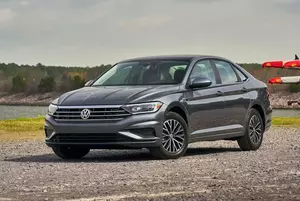
| Vehicle | Curb weight | Difference from world's smallest | Weight to power ratio | 0—60 mph acceleration ratio | Consumption ratio |
|---|---|---|---|---|---|
| 1.4 TSI |
1310 kg / 2889 lbs |
885 kg (1952 lbs) heavier | 9 kg to 1 hp | - |
190 kg/L (419 lbs/L) |
| GLI 2.0 TSI |
1459 kg / 3217 lbs |
1034 kg (2280 lbs) heavier | 6 kg to 1 hp | - |
174 kg/L (384 lbs/L) |
| Vehicle | 1.4 TSI |
|---|---|
| Curb weight |
1310 kg / 2889 lbs |
| Difference from world's smallest | 885 kg (885 lbs) heavier |
| Weight to power ratio | 9 kg to 1 hp |
| 0—60 mph acceleration ratio | - |
| Consumption ratio |
190 kg/L (419 lbs/L) |
| Vehicle | GLI 2.0 TSI |
| Curb weight |
1459 kg / 3217 lbs |
| Difference from world's smallest | 1034 kg (1034 lbs) heavier |
| Weight to power ratio | 6 kg to 1 hp |
| 0—60 mph acceleration ratio | - |
| Consumption ratio |
174 kg/L (384 lbs/L) |
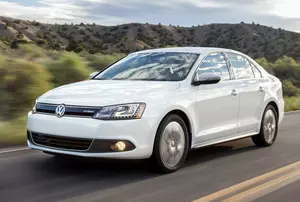
| Vehicle | Curb weight | Difference from world's smallest | Weight to power ratio | 0—60 mph acceleration ratio | Consumption ratio |
|---|---|---|---|---|---|
| 1.2 TSI |
1309 kg / 2886 lbs |
884 kg (1949 lbs) heavier | 12 kg to 1 hp | 128 kg/s (282 lbs/s) |
257 kg/L (567 lbs/L) |
| 1.4 TSI |
1364 kg / 3008 lbs |
939 kg (2071 lbs) heavier | 9 kg to 1 hp | 166 kg/s (366 lbs/s) |
267 kg/L (589 lbs/L) |
| 2.0 TDI |
1448 kg / 3193 lbs |
1023 kg (2256 lbs) heavier | 10 kg to 1 hp | 170 kg/s (375 lbs/s) |
322 kg/L (710 lbs/L) |
| Vehicle | 1.2 TSI |
|---|---|
| Curb weight |
1309 kg / 2886 lbs |
| Difference from world's smallest | 884 kg (884 lbs) heavier |
| Weight to power ratio | 12 kg to 1 hp |
| 0—60 mph acceleration ratio | 128 kg/s (282 lbs/s) |
| Consumption ratio |
257 kg/L (567 lbs/L) |
| Vehicle | 1.4 TSI |
| Curb weight |
1364 kg / 3008 lbs |
| Difference from world's smallest | 939 kg (939 lbs) heavier |
| Weight to power ratio | 9 kg to 1 hp |
| 0—60 mph acceleration ratio | 166 kg/s (366 lbs/s) |
| Consumption ratio |
267 kg/L (589 lbs/L) |
| Vehicle | 2.0 TDI |
| Curb weight |
1448 kg / 3193 lbs |
| Difference from world's smallest | 1023 kg (1023 lbs) heavier |
| Weight to power ratio | 10 kg to 1 hp |
| 0—60 mph acceleration ratio | 170 kg/s (375 lbs/s) |
| Consumption ratio |
322 kg/L (710 lbs/L) |
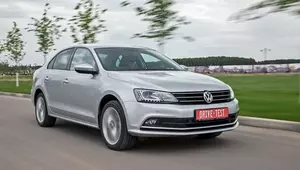
| Vehicle | Curb weight | Difference from world's smallest | Weight to power ratio | 0—60 mph acceleration ratio | Consumption ratio |
|---|---|---|---|---|---|
| 1.4i TSI |
1404 kg / 3096 lbs |
979 kg (2159 lbs) heavier | 12 kg to 1 hp | 151 kg/s (333 lbs/s) |
251 kg/L (553 lbs/L) |
| 1.6i 16V |
1378 kg / 3038 lbs |
953 kg (2101 lbs) heavier | 14 kg to 1 hp | 119 kg/s (262 lbs/s) |
203 kg/L (448 lbs/L) |
| 1.2 |
1302 kg / 2871 lbs |
877 kg (1934 lbs) heavier | 12 kg to 1 hp | 125 kg/s (276 lbs/s) |
228 kg/L (503 lbs/L) |
| 1.6 |
1412 kg / 3113 lbs |
987 kg (2176 lbs) heavier | 13 kg to 1 hp | 127 kg/s (280 lbs/s) |
300 kg/L (662 lbs/L) |
| 2.0 TDI |
1411 kg / 3111 lbs |
986 kg (2174 lbs) heavier | 10 kg to 1 hp | 157 kg/s (346 lbs/s) |
294 kg/L (648 lbs/L) |
| Vehicle | 1.4i TSI |
|---|---|
| Curb weight |
1404 kg / 3096 lbs |
| Difference from world's smallest | 979 kg (979 lbs) heavier |
| Weight to power ratio | 12 kg to 1 hp |
| 0—60 mph acceleration ratio | 151 kg/s (333 lbs/s) |
| Consumption ratio |
251 kg/L (553 lbs/L) |
| Vehicle | 1.6i 16V |
| Curb weight |
1378 kg / 3038 lbs |
| Difference from world's smallest | 953 kg (953 lbs) heavier |
| Weight to power ratio | 14 kg to 1 hp |
| 0—60 mph acceleration ratio | 119 kg/s (262 lbs/s) |
| Consumption ratio |
203 kg/L (448 lbs/L) |
| Vehicle | 1.2 |
| Curb weight |
1302 kg / 2871 lbs |
| Difference from world's smallest | 877 kg (877 lbs) heavier |
| Weight to power ratio | 12 kg to 1 hp |
| 0—60 mph acceleration ratio | 125 kg/s (276 lbs/s) |
| Consumption ratio |
228 kg/L (503 lbs/L) |
| Vehicle | 1.6 |
| Curb weight |
1412 kg / 3113 lbs |
| Difference from world's smallest | 987 kg (987 lbs) heavier |
| Weight to power ratio | 13 kg to 1 hp |
| 0—60 mph acceleration ratio | 127 kg/s (280 lbs/s) |
| Consumption ratio |
300 kg/L (662 lbs/L) |
| Vehicle | 2.0 TDI |
| Curb weight |
1411 kg / 3111 lbs |
| Difference from world's smallest | 986 kg (986 lbs) heavier |
| Weight to power ratio | 10 kg to 1 hp |
| 0—60 mph acceleration ratio | 157 kg/s (346 lbs/s) |
| Consumption ratio |
294 kg/L (648 lbs/L) |
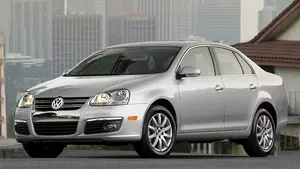
| Vehicle | Curb weight | Difference from world's smallest | Weight to power ratio | 0—60 mph acceleration ratio | Consumption ratio |
|---|---|---|---|---|---|
| 1.4 TSI |
1380 kg / 3043 lbs |
955 kg (2106 lbs) heavier | 9 kg to 1 hp | 170 kg/s (375 lbs/s) |
216 kg/L (476 lbs/L) |
| 1.6 FSI |
1271 kg / 2803 lbs |
846 kg (1866 lbs) heavier | 11 kg to 1 hp | 121 kg/s (267 lbs/s) |
184 kg/L (406 lbs/L) |
| 1.6 i |
1268 kg / 2796 lbs |
843 kg (1859 lbs) heavier | 12 kg to 1 hp | 109 kg/s (240 lbs/s) |
167 kg/L (368 lbs/L) |
| 1.9 TDI PDE |
1345 kg / 2966 lbs |
920 kg (2029 lbs) heavier | 13 kg to 1 hp | 120 kg/s (265 lbs/s) |
228 kg/L (503 lbs/L) |
| 2.0 FSI |
1319 kg / 2908 lbs |
894 kg (1971 lbs) heavier | 9 kg to 1 hp | 152 kg/s (335 lbs/s) |
161 kg/L (355 lbs/L) |
| 2.5i |
1319 kg / 2908 lbs |
894 kg (1971 lbs) heavier | 9 kg to 1 hp | 152 kg/s (335 lbs/s) |
161 kg/L (355 lbs/L) |
| Vehicle | 1.4 TSI |
|---|---|
| Curb weight |
1380 kg / 3043 lbs |
| Difference from world's smallest | 955 kg (955 lbs) heavier |
| Weight to power ratio | 9 kg to 1 hp |
| 0—60 mph acceleration ratio | 170 kg/s (375 lbs/s) |
| Consumption ratio |
216 kg/L (476 lbs/L) |
| Vehicle | 1.6 FSI |
| Curb weight |
1271 kg / 2803 lbs |
| Difference from world's smallest | 846 kg (846 lbs) heavier |
| Weight to power ratio | 11 kg to 1 hp |
| 0—60 mph acceleration ratio | 121 kg/s (267 lbs/s) |
| Consumption ratio |
184 kg/L (406 lbs/L) |
| Vehicle | 1.6 i |
| Curb weight |
1268 kg / 2796 lbs |
| Difference from world's smallest | 843 kg (843 lbs) heavier |
| Weight to power ratio | 12 kg to 1 hp |
| 0—60 mph acceleration ratio | 109 kg/s (240 lbs/s) |
| Consumption ratio |
167 kg/L (368 lbs/L) |
| Vehicle | 1.9 TDI PDE |
| Curb weight |
1345 kg / 2966 lbs |
| Difference from world's smallest | 920 kg (920 lbs) heavier |
| Weight to power ratio | 13 kg to 1 hp |
| 0—60 mph acceleration ratio | 120 kg/s (265 lbs/s) |
| Consumption ratio |
228 kg/L (503 lbs/L) |
| Vehicle | 2.0 FSI |
| Curb weight |
1319 kg / 2908 lbs |
| Difference from world's smallest | 894 kg (894 lbs) heavier |
| Weight to power ratio | 9 kg to 1 hp |
| 0—60 mph acceleration ratio | 152 kg/s (335 lbs/s) |
| Consumption ratio |
161 kg/L (355 lbs/L) |
| Vehicle | 2.5i |
| Curb weight |
1319 kg / 2908 lbs |
| Difference from world's smallest | 894 kg (894 lbs) heavier |
| Weight to power ratio | 9 kg to 1 hp |
| 0—60 mph acceleration ratio | 152 kg/s (335 lbs/s) |
| Consumption ratio |
161 kg/L (355 lbs/L) |
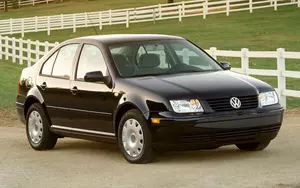
| Vehicle | Curb weight | Difference from world's smallest | Weight to power ratio | 0—60 mph acceleration ratio | Consumption ratio |
|---|---|---|---|---|---|
| 1.9 TDI |
1725 kg / 3804 lbs |
1300 kg (2867 lbs) heavier | 19 kg to 1 hp | 140 kg/s (309 lbs/s) | - |
| 2.3 VR5 20V |
1302 kg / 2871 lbs |
877 kg (1934 lbs) heavier | 8 kg to 1 hp | 161 kg/s (355 lbs/s) |
150 kg/L (331 lbs/L) |
| 1.8T 20V |
1298 kg / 2862 lbs |
873 kg (1925 lbs) heavier | 9 kg to 1 hp | 153 kg/s (337 lbs/s) | - |
| 2.0 |
1237 kg / 2728 lbs |
812 kg (1791 lbs) heavier | 11 kg to 1 hp | 118 kg/s (260 lbs/s) | - |
| 1.6 |
1185 kg / 2613 lbs |
760 kg (1676 lbs) heavier | 12 kg to 1 hp | 107 kg/s (236 lbs/s) |
154 kg/L (340 lbs/L) |
| 1.4 16V |
1165 kg / 2569 lbs |
740 kg (1632 lbs) heavier | 16 kg to 1 hp | 82 kg/s (181 lbs/s) |
177 kg/L (390 lbs/L) |
| 1.6 16V |
1195 kg / 2635 lbs |
770 kg (1698 lbs) heavier | 11 kg to 1 hp | 114 kg/s (251 lbs/s) |
173 kg/L (381 lbs/L) |
| 1.8 i T |
1340 kg / 2955 lbs |
915 kg (2018 lbs) heavier | 7 kg to 1 hp | 172 kg/s (379 lbs/s) | - |
| 2.3 VR5 |
1300 kg / 2867 lbs |
875 kg (1930 lbs) heavier | 9 kg to 1 hp | 151 kg/s (333 lbs/s) | - |
| 2.8 VR6 |
1455 kg / 3208 lbs |
1030 kg (2271 lbs) heavier | 7 kg to 1 hp | 208 kg/s (459 lbs/s) | - |
| Vehicle | 1.9 TDI |
|---|---|
| Curb weight |
1725 kg / 3804 lbs |
| Difference from world's smallest | 1300 kg (1300 lbs) heavier |
| Weight to power ratio | 19 kg to 1 hp |
| 0—60 mph acceleration ratio | 140 kg/s (309 lbs/s) |
| Consumption ratio | - |
| Vehicle | 2.3 VR5 20V |
| Curb weight |
1302 kg / 2871 lbs |
| Difference from world's smallest | 877 kg (877 lbs) heavier |
| Weight to power ratio | 8 kg to 1 hp |
| 0—60 mph acceleration ratio | 161 kg/s (355 lbs/s) |
| Consumption ratio |
150 kg/L (331 lbs/L) |
| Vehicle | 1.8T 20V |
| Curb weight |
1298 kg / 2862 lbs |
| Difference from world's smallest | 873 kg (873 lbs) heavier |
| Weight to power ratio | 9 kg to 1 hp |
| 0—60 mph acceleration ratio | 153 kg/s (337 lbs/s) |
| Consumption ratio | - |
| Vehicle | 2.0 |
| Curb weight |
1237 kg / 2728 lbs |
| Difference from world's smallest | 812 kg (812 lbs) heavier |
| Weight to power ratio | 11 kg to 1 hp |
| 0—60 mph acceleration ratio | 118 kg/s (260 lbs/s) |
| Consumption ratio | - |
| Vehicle | 1.6 |
| Curb weight |
1185 kg / 2613 lbs |
| Difference from world's smallest | 760 kg (760 lbs) heavier |
| Weight to power ratio | 12 kg to 1 hp |
| 0—60 mph acceleration ratio | 107 kg/s (236 lbs/s) |
| Consumption ratio |
154 kg/L (340 lbs/L) |
| Vehicle | 1.4 16V |
| Curb weight |
1165 kg / 2569 lbs |
| Difference from world's smallest | 740 kg (740 lbs) heavier |
| Weight to power ratio | 16 kg to 1 hp |
| 0—60 mph acceleration ratio | 82 kg/s (181 lbs/s) |
| Consumption ratio |
177 kg/L (390 lbs/L) |
| Vehicle | 1.6 16V |
| Curb weight |
1195 kg / 2635 lbs |
| Difference from world's smallest | 770 kg (770 lbs) heavier |
| Weight to power ratio | 11 kg to 1 hp |
| 0—60 mph acceleration ratio | 114 kg/s (251 lbs/s) |
| Consumption ratio |
173 kg/L (381 lbs/L) |
| Vehicle | 1.8 i T |
| Curb weight |
1340 kg / 2955 lbs |
| Difference from world's smallest | 915 kg (915 lbs) heavier |
| Weight to power ratio | 7 kg to 1 hp |
| 0—60 mph acceleration ratio | 172 kg/s (379 lbs/s) |
| Consumption ratio | - |
| Vehicle | 2.3 VR5 |
| Curb weight |
1300 kg / 2867 lbs |
| Difference from world's smallest | 875 kg (875 lbs) heavier |
| Weight to power ratio | 9 kg to 1 hp |
| 0—60 mph acceleration ratio | 151 kg/s (333 lbs/s) |
| Consumption ratio | - |
| Vehicle | 2.8 VR6 |
| Curb weight |
1455 kg / 3208 lbs |
| Difference from world's smallest | 1030 kg (1030 lbs) heavier |
| Weight to power ratio | 7 kg to 1 hp |
| 0—60 mph acceleration ratio | 208 kg/s (459 lbs/s) |
| Consumption ratio | - |
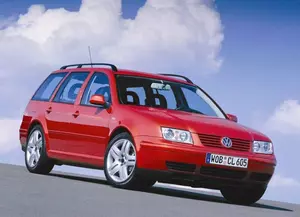
| Vehicle | Curb weight | Difference from world's smallest | Weight to power ratio | 0—60 mph acceleration ratio | Consumption ratio |
|---|---|---|---|---|---|
| 1.8i T 20V |
1360 kg / 2999 lbs |
935 kg (2062 lbs) heavier | 9 kg to 1 hp | 156 kg/s (344 lbs/s) | - |
| 2.0 |
1292 kg / 2849 lbs |
867 kg (1912 lbs) heavier | 11 kg to 1 hp | 123 kg/s (271 lbs/s) |
162 kg/L (357 lbs/L) |
| 1.9 TDI |
1400 kg / 3087 lbs |
975 kg (2150 lbs) heavier | 9 kg to 1 hp | 161 kg/s (355 lbs/s) |
259 kg/L (571 lbs/L) |
| 2.3 VR5 |
1360 kg / 2999 lbs |
935 kg (2062 lbs) heavier | 9 kg to 1 hp | 158 kg/s (348 lbs/s) |
151 kg/L (333 lbs/L) |
| Vehicle | 1.8i T 20V |
|---|---|
| Curb weight |
1360 kg / 2999 lbs |
| Difference from world's smallest | 935 kg (935 lbs) heavier |
| Weight to power ratio | 9 kg to 1 hp |
| 0—60 mph acceleration ratio | 156 kg/s (344 lbs/s) |
| Consumption ratio | - |
| Vehicle | 2.0 |
| Curb weight |
1292 kg / 2849 lbs |
| Difference from world's smallest | 867 kg (867 lbs) heavier |
| Weight to power ratio | 11 kg to 1 hp |
| 0—60 mph acceleration ratio | 123 kg/s (271 lbs/s) |
| Consumption ratio |
162 kg/L (357 lbs/L) |
| Vehicle | 1.9 TDI |
| Curb weight |
1400 kg / 3087 lbs |
| Difference from world's smallest | 975 kg (975 lbs) heavier |
| Weight to power ratio | 9 kg to 1 hp |
| 0—60 mph acceleration ratio | 161 kg/s (355 lbs/s) |
| Consumption ratio |
259 kg/L (571 lbs/L) |
| Vehicle | 2.3 VR5 |
| Curb weight |
1360 kg / 2999 lbs |
| Difference from world's smallest | 935 kg (935 lbs) heavier |
| Weight to power ratio | 9 kg to 1 hp |
| 0—60 mph acceleration ratio | 158 kg/s (348 lbs/s) |
| Consumption ratio |
151 kg/L (333 lbs/L) |
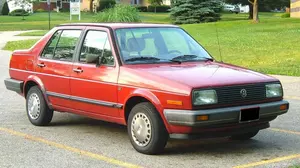
| Vehicle | Curb weight | Difference from world's smallest | Weight to power ratio | 0—60 mph acceleration ratio | Consumption ratio |
|---|---|---|---|---|---|
| 1.8 |
1180 kg / 2602 lbs |
755 kg (1665 lbs) heavier | 13 kg to 1 hp | 99 kg/s (218 lbs/s) |
151 kg/L (333 lbs/L) |
| 2.0 |
1235 kg / 2723 lbs |
810 kg (1786 lbs) heavier | 11 kg to 1 hp | 125 kg/s (276 lbs/s) |
165 kg/L (364 lbs/L) |
| 2.8 VR6 |
1340 kg / 2955 lbs |
915 kg (2018 lbs) heavier | 8 kg to 1 hp | 181 kg/s (399 lbs/s) |
151 kg/L (333 lbs/L) |
| 1.6 |
1180 kg / 2602 lbs |
755 kg (1665 lbs) heavier | 12 kg to 1 hp | 106 kg/s (234 lbs/s) |
155 kg/L (342 lbs/L) |
| 1.9 D |
1225 kg / 2701 lbs |
800 kg (1764 lbs) heavier | 19 kg to 1 hp | 70 kg/s (154 lbs/s) |
250 kg/L (551 lbs/L) |
| 1.9 TDI |
1260 kg / 2778 lbs |
835 kg (1841 lbs) heavier | 14 kg to 1 hp | 101 kg/s (223 lbs/s) |
217 kg/L (478 lbs/L) |
| 1.9 SDI |
1425 kg / 3142 lbs |
1000 kg (2205 lbs) heavier | 22 kg to 1 hp | 82 kg/s (181 lbs/s) |
291 kg/L (642 lbs/L) |
| 1.9 TD |
1235 kg / 2723 lbs |
810 kg (1786 lbs) heavier | 16 kg to 1 hp | 83 kg/s (183 lbs/s) |
165 kg/L (364 lbs/L) |
| Vehicle | 1.8 |
|---|---|
| Curb weight |
1180 kg / 2602 lbs |
| Difference from world's smallest | 755 kg (755 lbs) heavier |
| Weight to power ratio | 13 kg to 1 hp |
| 0—60 mph acceleration ratio | 99 kg/s (218 lbs/s) |
| Consumption ratio |
151 kg/L (333 lbs/L) |
| Vehicle | 2.0 |
| Curb weight |
1235 kg / 2723 lbs |
| Difference from world's smallest | 810 kg (810 lbs) heavier |
| Weight to power ratio | 11 kg to 1 hp |
| 0—60 mph acceleration ratio | 125 kg/s (276 lbs/s) |
| Consumption ratio |
165 kg/L (364 lbs/L) |
| Vehicle | 2.8 VR6 |
| Curb weight |
1340 kg / 2955 lbs |
| Difference from world's smallest | 915 kg (915 lbs) heavier |
| Weight to power ratio | 8 kg to 1 hp |
| 0—60 mph acceleration ratio | 181 kg/s (399 lbs/s) |
| Consumption ratio |
151 kg/L (333 lbs/L) |
| Vehicle | 1.6 |
| Curb weight |
1180 kg / 2602 lbs |
| Difference from world's smallest | 755 kg (755 lbs) heavier |
| Weight to power ratio | 12 kg to 1 hp |
| 0—60 mph acceleration ratio | 106 kg/s (234 lbs/s) |
| Consumption ratio |
155 kg/L (342 lbs/L) |
| Vehicle | 1.9 D |
| Curb weight |
1225 kg / 2701 lbs |
| Difference from world's smallest | 800 kg (800 lbs) heavier |
| Weight to power ratio | 19 kg to 1 hp |
| 0—60 mph acceleration ratio | 70 kg/s (154 lbs/s) |
| Consumption ratio |
250 kg/L (551 lbs/L) |
| Vehicle | 1.9 TDI |
| Curb weight |
1260 kg / 2778 lbs |
| Difference from world's smallest | 835 kg (835 lbs) heavier |
| Weight to power ratio | 14 kg to 1 hp |
| 0—60 mph acceleration ratio | 101 kg/s (223 lbs/s) |
| Consumption ratio |
217 kg/L (478 lbs/L) |
| Vehicle | 1.9 SDI |
| Curb weight |
1425 kg / 3142 lbs |
| Difference from world's smallest | 1000 kg (1000 lbs) heavier |
| Weight to power ratio | 22 kg to 1 hp |
| 0—60 mph acceleration ratio | 82 kg/s (181 lbs/s) |
| Consumption ratio |
291 kg/L (642 lbs/L) |
| Vehicle | 1.9 TD |
| Curb weight |
1235 kg / 2723 lbs |
| Difference from world's smallest | 810 kg (810 lbs) heavier |
| Weight to power ratio | 16 kg to 1 hp |
| 0—60 mph acceleration ratio | 83 kg/s (183 lbs/s) |
| Consumption ratio |
165 kg/L (364 lbs/L) |
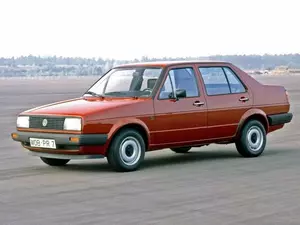
| Vehicle | Curb weight | Difference from world's smallest | Weight to power ratio | 0—60 mph acceleration ratio | Consumption ratio |
|---|---|---|---|---|---|
| 1.8i |
985 kg / 2172 lbs |
560 kg (1235 lbs) heavier | 11 kg to 1 hp | 87 kg/s (192 lbs/s) |
116 kg/L (256 lbs/L) |
| 1.6 |
930 kg / 2051 lbs |
505 kg (1114 lbs) heavier | 13 kg to 1 hp | 68 kg/s (150 lbs/s) |
113 kg/L (249 lbs/L) |
| 1.3 i |
935 kg / 2062 lbs |
510 kg (1125 lbs) heavier | 17 kg to 1 hp | 58 kg/s (128 lbs/s) |
120 kg/L (265 lbs/L) |
| 1.8 i 16V |
1035 kg / 2282 lbs |
610 kg (1345 lbs) heavier | 8 kg to 1 hp | 118 kg/s (260 lbs/s) |
114 kg/L (251 lbs/L) |
| 1.8 i Syncro |
1140 kg / 2514 lbs |
715 kg (1577 lbs) heavier | 12 kg to 1 hp | 105 kg/s (232 lbs/s) |
124 kg/L (273 lbs/L) |
| 1.8 i |
1000 kg / 2205 lbs |
575 kg (1268 lbs) heavier | 9 kg to 1 hp | 99 kg/s (218 lbs/s) |
115 kg/L (254 lbs/L) |
| 2.0 i 16V |
1035 kg / 2282 lbs |
610 kg (1345 lbs) heavier | 8 kg to 1 hp | 118 kg/s (260 lbs/s) |
114 kg/L (251 lbs/L) |
| Vehicle | 1.8i |
|---|---|
| Curb weight |
985 kg / 2172 lbs |
| Difference from world's smallest | 560 kg (560 lbs) heavier |
| Weight to power ratio | 11 kg to 1 hp |
| 0—60 mph acceleration ratio | 87 kg/s (192 lbs/s) |
| Consumption ratio |
116 kg/L (256 lbs/L) |
| Vehicle | 1.6 |
| Curb weight |
930 kg / 2051 lbs |
| Difference from world's smallest | 505 kg (505 lbs) heavier |
| Weight to power ratio | 13 kg to 1 hp |
| 0—60 mph acceleration ratio | 68 kg/s (150 lbs/s) |
| Consumption ratio |
113 kg/L (249 lbs/L) |
| Vehicle | 1.3 i |
| Curb weight |
935 kg / 2062 lbs |
| Difference from world's smallest | 510 kg (510 lbs) heavier |
| Weight to power ratio | 17 kg to 1 hp |
| 0—60 mph acceleration ratio | 58 kg/s (128 lbs/s) |
| Consumption ratio |
120 kg/L (265 lbs/L) |
| Vehicle | 1.8 i 16V |
| Curb weight |
1035 kg / 2282 lbs |
| Difference from world's smallest | 610 kg (610 lbs) heavier |
| Weight to power ratio | 8 kg to 1 hp |
| 0—60 mph acceleration ratio | 118 kg/s (260 lbs/s) |
| Consumption ratio |
114 kg/L (251 lbs/L) |
| Vehicle | 1.8 i Syncro |
| Curb weight |
1140 kg / 2514 lbs |
| Difference from world's smallest | 715 kg (715 lbs) heavier |
| Weight to power ratio | 12 kg to 1 hp |
| 0—60 mph acceleration ratio | 105 kg/s (232 lbs/s) |
| Consumption ratio |
124 kg/L (273 lbs/L) |
| Vehicle | 1.8 i |
| Curb weight |
1000 kg / 2205 lbs |
| Difference from world's smallest | 575 kg (575 lbs) heavier |
| Weight to power ratio | 9 kg to 1 hp |
| 0—60 mph acceleration ratio | 99 kg/s (218 lbs/s) |
| Consumption ratio |
115 kg/L (254 lbs/L) |
| Vehicle | 2.0 i 16V |
| Curb weight |
1035 kg / 2282 lbs |
| Difference from world's smallest | 610 kg (610 lbs) heavier |
| Weight to power ratio | 8 kg to 1 hp |
| 0—60 mph acceleration ratio | 118 kg/s (260 lbs/s) |
| Consumption ratio |
114 kg/L (251 lbs/L) |